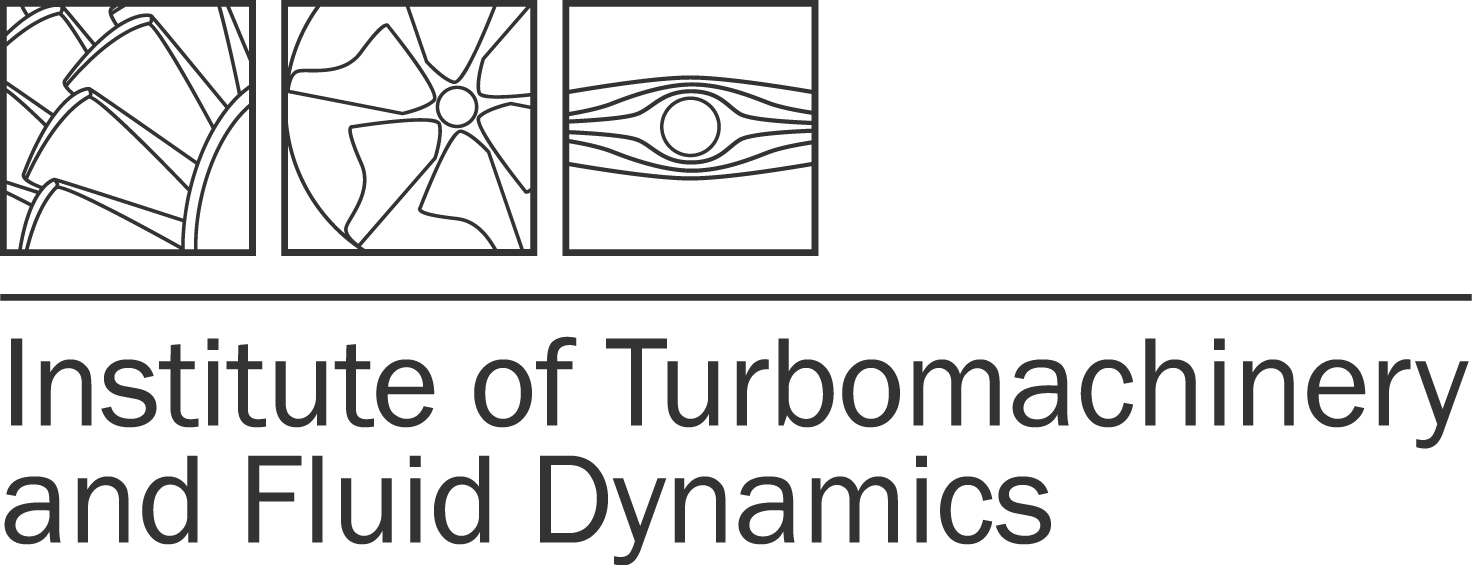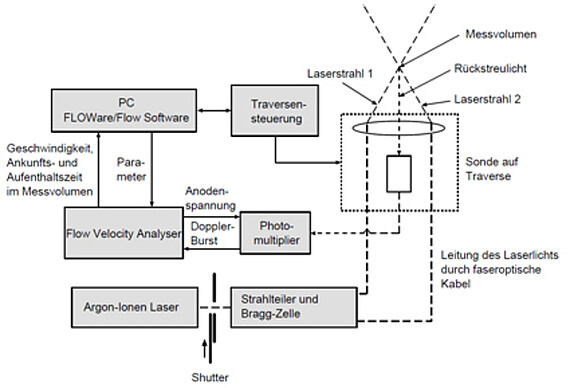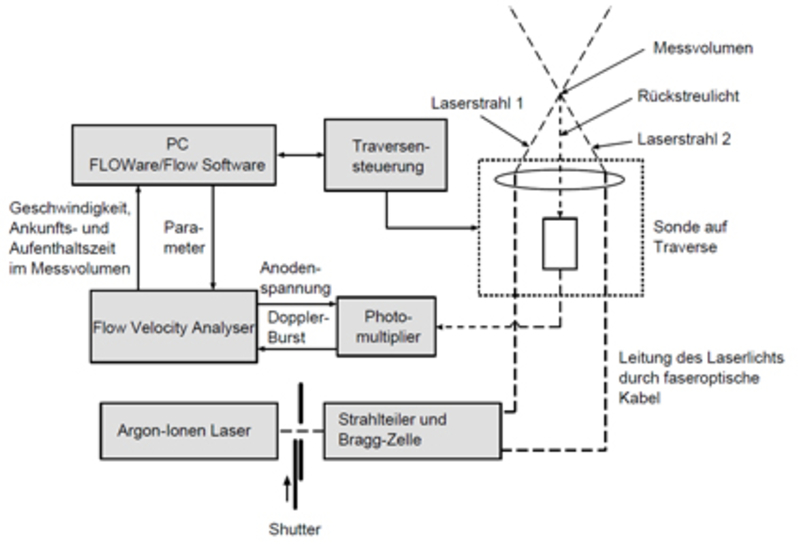Field of Application
- Non-contact measurement of flow velocities and turbulent flow variables
- High temporal resolution for improvement of highly turbulent flows
Description
The LDA measurement technique is a calibration-free and non-invasive absolute measurement method, i.e. without influencing the flow by measuring probes. In order to measure unsteady flows both locally and temporally with high point resolution, the LDA is used.
By crossing two coherent laser beams, a fringe pattern, the so-called interference fringe pattern, is generated by interference. Due to the finite thickness of the laser beams, an interference ellipsoid is created, which represents the measurement volume. The added particles in the flow pass through the measurement volume and reflect the laser light. This reflection is collected by a photodetector and converted into an electrical signal, the so-called Doppler burst. From this electrical signal, the time t required for a particle to pass through a light or dark area can be determined. With the time t and the fringe spacing δ, the velocity of the particle can be calculated. In order to also resolve from which side the particle traverses the measurement volume, a Bragg cell is used to frequency shift the interference pattern by 40 MHz. This produces a moving interference pattern, which can be used to determine both the velocity and the direction of the fluid flow.
For each beam run, one direction component can be determined. Therefore, for multidimensional investigations, up to three beam paths with different wavelengths are superimposed in the measuring volume.
At TFD, a two-dimensional LDA is used at the diffuser test rig to measure in particular the flow field close to the housing.
Measurement Parameter
- Two-dimensional velocity vector
- Turbulent fluctuation variables









